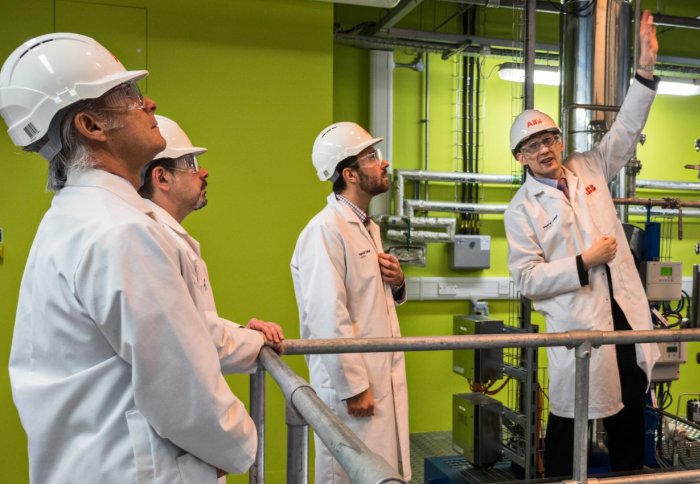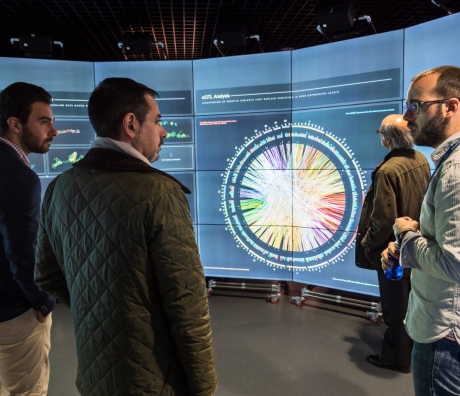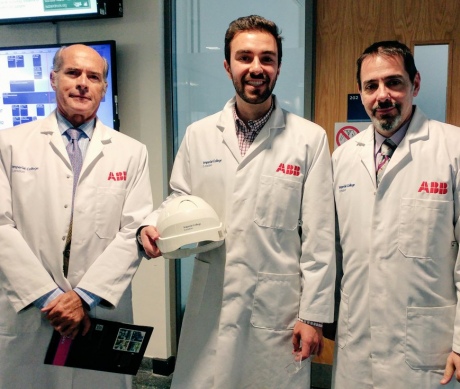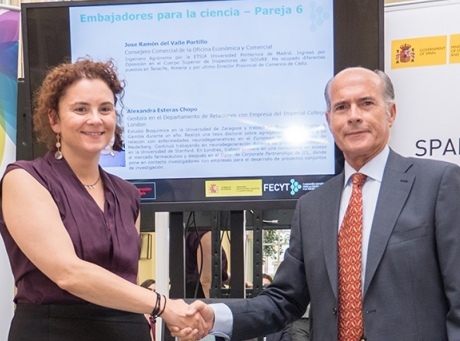Scientists and diplomats unite to explore innovative approaches to policy-making

Image credit: Adrian Ruiz Martin
Imperial researchers hosted representatives from the Spanish Embassy in London as part of the 'Ambassadors for Science' pairing scheme.
The aim of the scheme is to expose scientists and diplomats to new perspectives in policy-making, and to enable a more collaborative approach to science diplomacy. ‘Ambassadors for Science’ is organised by the Spanish Foundation for Science and Technology (FECYT) and the Office for Cultural and Scientific Affairs of the Spanish Embassy in London, with the support of the Society of Spanish Researchers in the United Kingdom (SRUK/CERU).
Last week, Imperial scientists welcomed their diplomatic partners to the College to provide a first-hand insight into their research. The diplomats also had the opportunity to meet with members of Imperial’s International Office to discuss common goals and interests.
As well as engaging in discussions with a range of research staff throughout the day, the diplomats visited key facilities within the College, including the Carbon Capture Pilot Plant and Data Observatory.

Members of the Spanish Embassy visit the Data Science Institute. Image credit: Adrián Ruiz Martín
Sergio Perez, a PhD student in the Department of Chemical Engineering, was paired with Juan Duarte Cuadrado, Political Counsellor of the Spanish Embassy in London.

Sergio Perez accompanies members of the Spanish Embassy to the Carbon Capture Pilot Plant. Image credit: Adrián Ruiz Martín
“We met our diplomatic partners in September, and participated in sessions on diplomacy, the links between policy and science and the inclusion of science in public policies,” Sergio explains.
“Outside of these scheduled sessions, the pairs involved in the scheme are free to organise visits to each other’s place of work. I have already been to the Spanish Embassy twice, and have met with different diplomats there to learn more about what they do, and how an embassy functions more generally.”
“Although I enjoy being a researcher, I think it’s vital that scientists engage with society, and also communicate what they do. Science diplomacy prompts us to do this by exploring and establishing international science collaborations, so that lasting partnerships can be built. The program enables both scientists and diplomats to learn about each other’s motivations, so that more effective policies can be put forward.”

Dr Alexandra Esteras-Chopo and her diplomatic partner, Jose Ramon del Valle Portillo
Dr Alexandra Esteras-Chopo, who works as part of the Faculty of Medicine's Corporate Partnerships team, was paired with Jose Ramon del Valle Portillo, Commercial Delegate for the Spanish Embassy.
She commented: “Diplomatic relationships can help to open doors ro develop new academic and industrial partnerships."
"I’m looking forward to learning more about the activities of the Spanish Commercial Office in London and identifying ways to collaborate with Imperial in education, research and innovation”
Find out more about the Ambassadors for Science scheme on the FECYT website.
Article text (excluding photos or graphics) © Imperial College London.
Photos and graphics subject to third party copyright used with permission or © Imperial College London.
Reporter
Ms Genevieve Timmins
Academic Services